Top 10 crypto payment: gateways for businesses in 2025. Explore detailed comparisons of fees, features, security, and global reach In 2025, businesses around the world are embracing new payment technologies, and one of the most transformative shifts has been the adoption of cryptocurrencies at checkout. What was once an experimental option for tech-savvy companies has now become an essential payment method for merchants across industries. Crypto payment gateways make this possible by providing businesses with the tools to accept Bitcoin, Ethereum, stablecoins, and other digital assets in a secure and convenient way. The benefits extend far beyond novelty — lower processing fees, instant global reach, faster settlement speeds, and access to a new generation of customers who prefer paying with digital currencies.
This article explores the Top 10 Crypto Payment Gateways for Businesses in 2025, offering a comprehensive look at their features, fees, integration options, and target users. By the end, businesses of all sizes will have a clearer view of which platform best matches their operational needs.
What is a Crypto Payment Gateway?
A crypto payment gateway is essentially the bridge between blockchain technology and traditional commerce. It enables businesses to accept cryptocurrencies without having to manage the complexities of blockchain wallets or volatile price swings themselves. Here’s how it typically works: when a customer chooses to pay in cryptocurrency, the gateway generates a payment request and verifies the transaction on the blockchain. The business can then receive the funds either directly in crypto or through instant conversion to fiat currencies like USD or EUR.
Unlike PayPal or Stripe, which rely on banking intermediaries, crypto payment processors operate across decentralized networks, cutting down settlement times and transaction costs. Most modern gateways also offer developer-friendly APIs, plugins for platforms like Shopify and WooCommerce, and compliance tools to help businesses meet regulations. In short, they are designed to make crypto payments as easy and reliable as accepting credit cards.
Factors to Consider Before Choosing a Gateway
Before adopting a crypto payment processor, businesses must weigh several factors carefully. Transaction fees, for example, can vary widely, from as low as 0.2% to as high as 1%, and those small percentages matter a great deal for companies processing thousands of payments. Another critical factor is the range of supported cryptocurrencies. Some gateways only support Bitcoin and Ethereum, while others offer hundreds of altcoins and stablecoins, giving customers greater flexibility.
Fiat settlement options are also important — many businesses prefer to receive instant conversion to local currency to avoid exposure to volatility, while others are happy to hold digital assets for long-term value. Integration capabilities matter too; a payment gateway that provides APIs, Shopify and WooCommerce plugins, and even point-of-sale hardware offers smoother onboarding for merchants. Finally, compliance, global accessibility, and customer support play decisive roles. A business operating in multiple regions must ensure the gateway is available and meets regulatory standards wherever it operates.
Top 10 Crypto Payment Gateways for Businesses in 2025
1. Cryptomus- Top 10 crypto payment

Source: Blockonomi
Founded in 2022, Cryptomus quickly gained attention for its competitive fee structure and wide cryptocurrency support. It allows merchants to accept payments in more than 100 cryptocurrencies, with automatic conversion to fiat if desired. Features such as recurring billing, mass payouts, and White Label solutions make it highly adaptable for small and medium-sized enterprises. The transaction fee of 0.4% positions Cryptomus as one of the lowest-cost providers in the market.
Best for: Small to medium businesses that want affordable processing and versatile integration tools.
2. CoinGate – Top 10 crypto payment
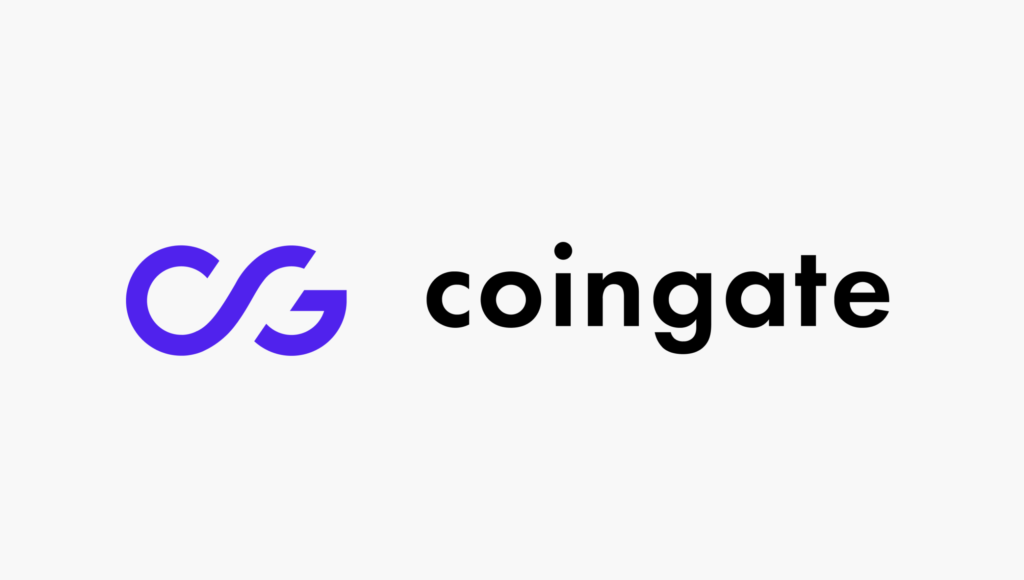
Source: LP
Since 2014, CoinGate has been serving merchants in over 170 countries, making it one of the most globally accessible crypto payment platforms. It supports over 70 cryptocurrencies and allows instant fiat conversion, protecting businesses from price volatility. Its ecosystem extends beyond payments, offering gift cards, eCommerce plugins, and POS systems. With fees starting at 1%, CoinGate is particularly attractive for businesses that need both crypto flexibility and reliable fiat settlement.
Best for: Businesses with international customers seeking a stable and compliant payment option.
3. BitPay
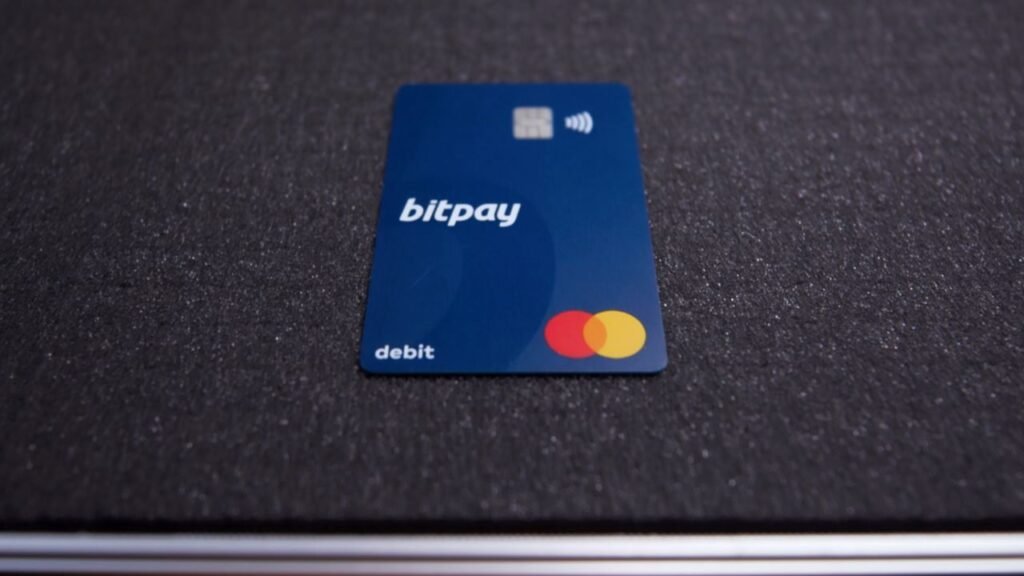
Source: Investopedia
Founded in 2011, BitPay is one of the oldest and most reputable names in the crypto payment industry. Known for its enterprise-grade security and compliance, it supports major tokens like Bitcoin and Ethereum. BitPay provides merchants with features like customizable invoices, direct bank deposits, and detailed financial dashboards. Its transaction fees start at 1%, and its long history makes it the preferred choice for enterprises that prioritize stability and brand recognition over novelty.
Best for: Large companies and enterprises that need a trusted, compliance-focused provider.
4. DePay
Launched in 2020, DePay brings a Web3-first approach to payments. It offers multi-chain support, integration with WalletConnect, and compatibility with decentralized services like Solana Pay. Unlike traditional processors, DePay does not require KYC verification, making it appealing to decentralized finance (DeFi) projects and startups seeking a frictionless setup. Its native token, DAPY, can also be used to reduce transaction costs, further aligning it with Web3 principles.
Best for: Web3 businesses and DeFi projects prioritizing decentralization and flexibility.
5. CoinPayments

Source: CoinPayments blog
Established in 2013, CoinPayments remains one of the most widely used processors thanks to its support for over 200 cryptocurrencies. Merchants benefit from auto-conversion tools, shopping cart plugins, and a multi-coin wallet. With transaction fees set at 0.5% plus network costs, CoinPayments strikes a balance between affordability and diversity. Its reputation and reliability make it a go-to choice for businesses that want broad token acceptance and strong platform stability.
Best for: Merchants seeking token diversity and a well-established history in crypto payments.
6. Stripe (Crypto-enabled) – Top 10 crypto payment
Known as one of the biggest names in global payments, Stripe’s move into crypto has positioned it as a hybrid solution for businesses. It allows merchants to accept major cryptocurrencies alongside traditional payment methods, all within one platform. With more than 450 integrations covering CRMs, CMS platforms, and POS systems, Stripe ensures flexibility for businesses of all sizes. Fees start at 0.25%, making it competitive, especially for companies already within the Stripe ecosystem.
Best for: Businesses already using Stripe that want to add crypto without switching providers.
7. Cryptix
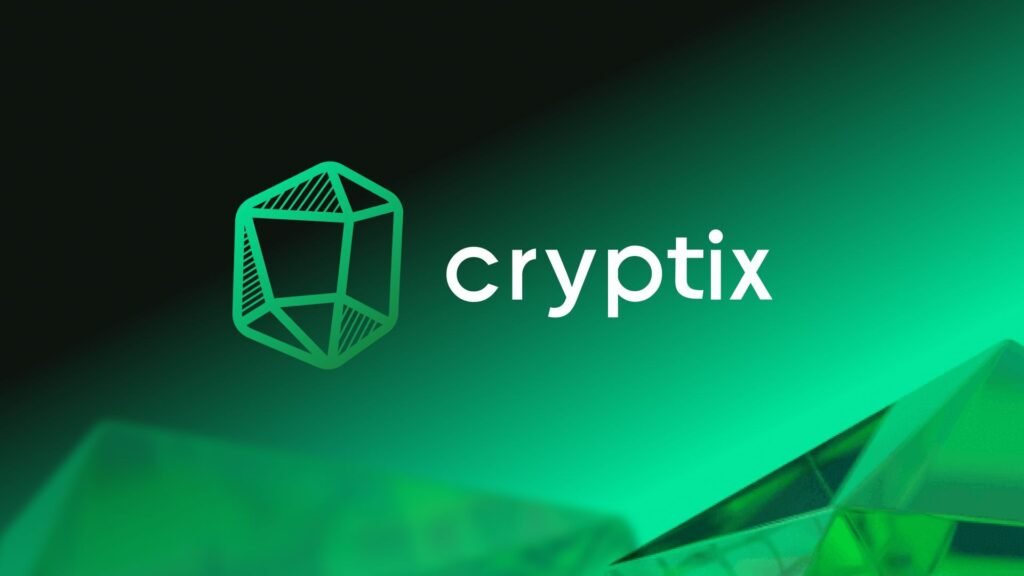
Source: CoinPaper
Founded in 2017, Cryptix is notable for its fast settlements, with transactions cleared in as little as 15 minutes. It supports BTC, ETH, SOL, and fiat currencies like USD and EUR, making it versatile for businesses operating in both traditional and digital economies. With added features like AML compliance tools, refunds, and exchange services, it caters to businesses that need speed and reliability. Fees begin at 0.2%, placing Cryptix among the most cost-efficient gateways available in 2025.
Best for: Companies seeking fast, secure, and compliant settlements.
8. Coinsbank – Top 10 crypto payment
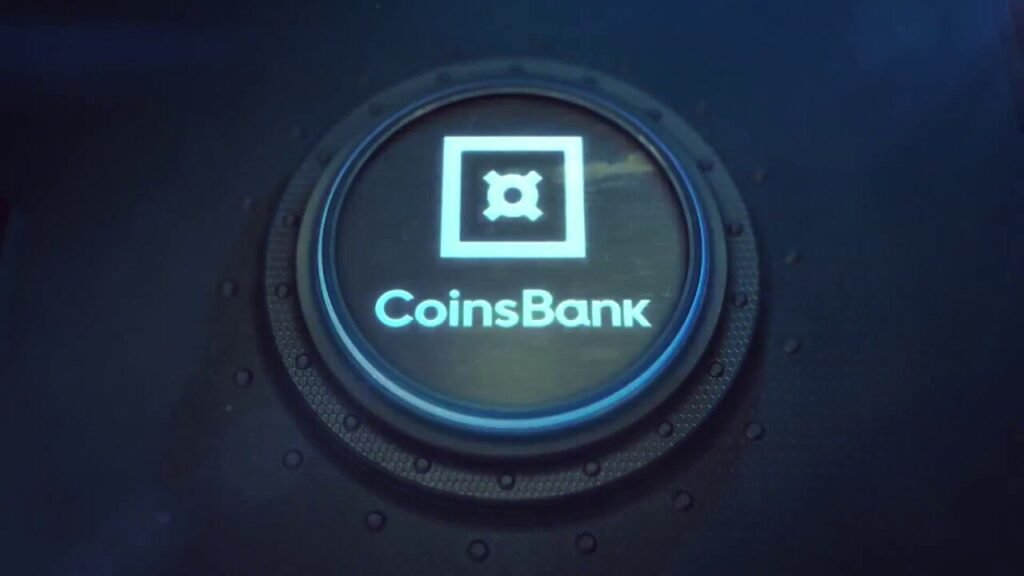
Source: Liquidity Provider
Operating since 2016, Coinsbank takes a different approach by focusing less on token variety and more on financial services. It supports only four cryptocurrencies — BTC, ETH, LTC, and XRP — but pairs this with prepaid cards, fiat gateways, and robust wallet management. This makes it more of a financial platform than just a payment processor, catering to businesses that want integrated services.
Best for: Fintechs and businesses prioritizing wallet and fiat service integration.
9. NOWPayments
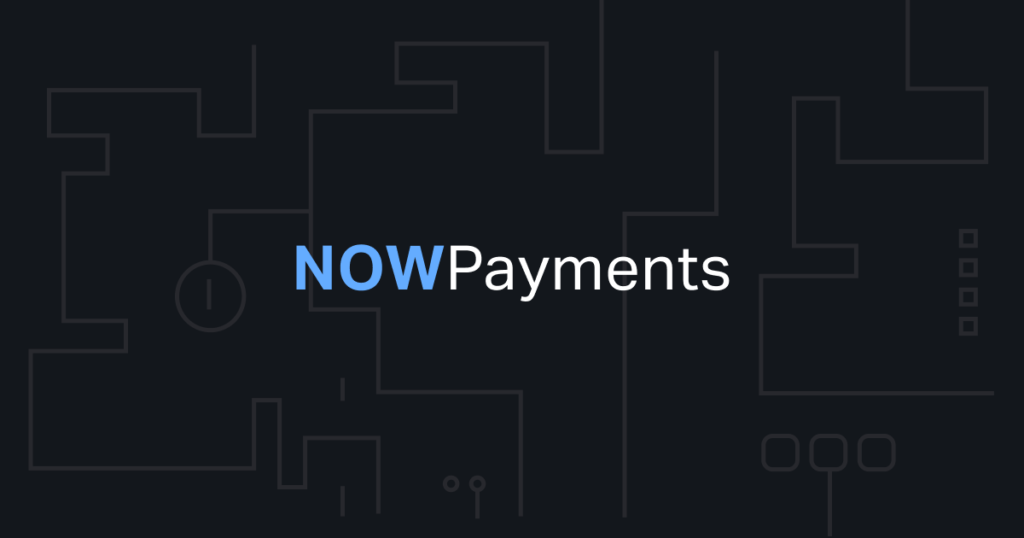
Source: NowPayments
NOWPayments, launched in 2019, has quickly grown popular, particularly in Asia. It supports more than 300 cryptocurrencies, offers features like recurring billing, auto-conversion, and donation widgets, and charges just 0.5% per transaction. With its affordability, wide crypto support, and flexible features, NOWPayments appeals to businesses ranging from small online stores to global eCommerce platforms.
Best for: Businesses that want an affordable, scalable solution with maximum crypto coverage.
10. Coinbase Commerce

Source: Medium
Backed by the reputation of Coinbase, one of the largest crypto exchanges, Coinbase Commerce has been active since 2018. It supports over 100 cryptocurrencies, offers volatility-free payments, and provides merchants with tools for fiat settlement and a streamlined dashboard. With fees starting at 1%, its main appeal lies in its strong compliance framework and trusted brand recognition, especially among businesses in the United States and Europe.
Best for: Businesses that want regulatory trust and ecosystem integration.
Why These Gateways Matter in 2025
In a global economy that increasingly values speed, flexibility, and transparency, crypto payment gateways have become more than a curiosity — they are a necessity. Businesses can lower costs, expand their customer base across borders, and keep pace with a new generation of digital-first consumers. As industries like gaming, travel, and SaaS continue adopting crypto payments, the gateways listed here provide an entry point into a financial system that is borderless and inclusive.
Looking Ahead – Top 10 crypto payment
The future of crypto payments will likely be shaped by broader adoption of stablecoins for everyday transactions, increasing integration with Web3 ecosystems, and stronger regulations that make enterprise adoption safer and more reliable. As multi-chain and cross-chain solutions mature, businesses will be able to accept payments from anywhere without worrying about blockchain fragmentation.
Conclusion
The evolution of business payments in 2025 highlights one clear fact: crypto payment gateways are no longer optional, but strategic. From low-fee platforms like Cryptomus and Cryptix to enterprise-ready services such as BitPay and Coinbase Commerce, each option brings something unique to the table. Choosing among the Top 10 Crypto Payment Gateways ultimately depends on business size, region, and priorities — but making the right decision today means staying ahead in tomorrow’s digital economy.



